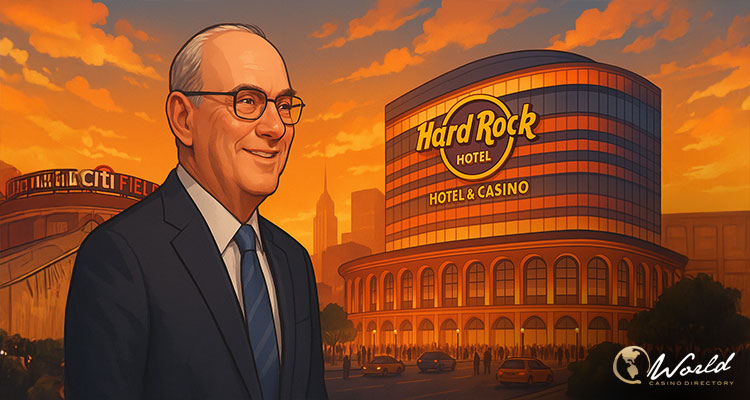Steve Cohen’s ambitious $8 billion vision for a casino and entertainment destination near Citi Field in Queens took a major step forward this week, after a closely contested vote by a New York state Senate committee gave the project vital legislative traction.
Key legislation clears initial hurdle in Albany:
On Tuesday, April 29th, a state Senate committee passed a bill 4-3 that would reclassify a 50-acre section of parking lot adjacent to Citi Field—currently designated as parkland—for commercial development. This move is critical for Cohen’s plan, which hinges on converting the underused Willets Point lot into “Metropolitan Park,” a mixed-use complex featuring a casino, hotel, new green spaces, and entertainment venues.
The bill, introduced by State Senator John Liu, whose district includes part of the development area, opens the possibility for Cohen and his partner Hard Rock International to submit a formal bid for one of the limited downstate casino licenses. The Gaming Facility Location Board requires applicants to resolve any zoning or land use concerns before the submission deadline of June 27.
This legislative development is particularly notable given that State Senator Jessica Ramos, who represents the majority of the district where the casino would be located, publicly declined to support the initiative in 2024. In New York state politics, such local opposition can often stall or derail large-scale real estate efforts.
As Bloomberg reported via Audacy, despite Ramos’ objections, Liu’s backing and the committee’s narrow approval signal renewed momentum for the project.
Metropolitan Park would span the asphalt lots near Citi Field and incorporate 25 acres of new park space, athletic facilities, transit station improvements, and a food hall showcasing local vendors. According to Cohen’s team, the project could generate approximately $1.9 billion annually in revenue. An analysis by Spectrum Gaming Group supports this projection.
“For decades, these 50 acres of asphalt have only been parking lots,” said Karl Rickett, a spokesperson for Metropolitan Park. “Today’s committee approval brings us one step closer to delivering 25 acres of actual public park space, 23,000 union jobs, new entertainment options, and over $1 billion in community benefits for Queens.”
Cohen, who bought the New York Mets for $2.4 billion in 2020, has also backed the proposal with substantial political investment. Public records show that he and his wife, Alexandra, have donated over $4.8 million to New York state candidates and committees since 2018—including $1 million to the state Democratic Party and $120,000 to the Senate Campaign Committee.
The broader economic impact of the casino push is also tied to New York’s public transit. Revenue from the casino licenses will help support the Metropolitan Transportation Authority (MTA) starting in 2026, with gaming tax revenue also distributed depending on project locations.
Growing competition for limited licenses:
The Metropolitan Park bid is just one of several in contention for the three downstate casino licenses expected to be awarded later this year. Leading contenders believed to be front-runners include MGM Resorts’ Empire City Casino in Yonkers and Genting’s Resorts World in Queens. If those two secure licenses, only one slot would remain for the remaining applicants—including Cohen and Hard Rock.
Other competing proposals include a Caesars-backed Times Square casino, a project in Hudson Yards supported by Related Cos. and Wynn Resorts, and a Bronx development proposed by Bally’s near a former Trump-operated golf course.
Additionally, developments near Metropolitan Park have helped build goodwill. Earlier this month, Cohen and Hard Rock joined forces with Slate Property Group to announce a separate housing project offering 450 residential units just miles from the proposed casino site.
With rival bids dropping out—Saks has withdrawn, and Las Vegas Sands is searching for a partner to salvage its plan at Nassau Coliseum—the competition is gradually narrowing, boosting the chances for Cohen’s proposal.
Under the current timeline, the Gaming Facility Location Board will submit final recommendations to the New York State Gaming Commission in December 2025.


